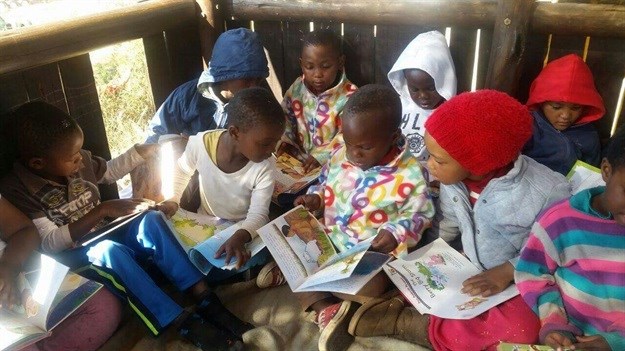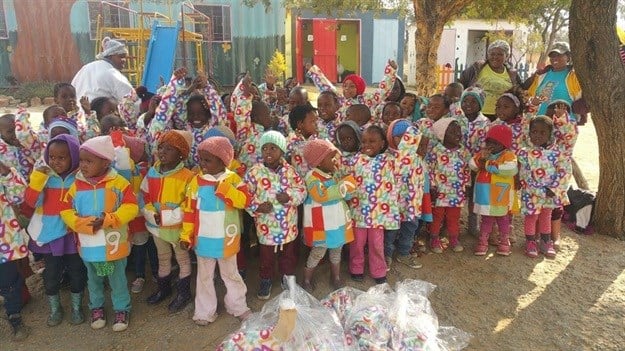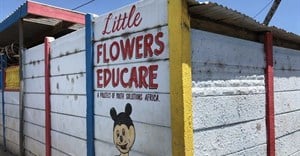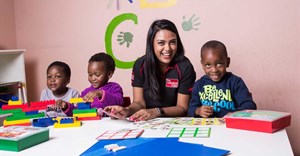Trending




 Sabre EMEA 2024 Awards: Razor PR, Retroviral top SA agenciesDanette Breitenbach
Sabre EMEA 2024 Awards: Razor PR, Retroviral top SA agenciesDanette Breitenbach
Elections 2024
#CSIMonth: Building the future through early childhood development

Build the Future's schools are currently situated in the densely populated townships of Kya Sands in Gauteng and Ndwedwe in KwaZulu-Natal. With an extensive waiting list, as the organisation prioritises quality over quantity, Build the Future aims to offer the best service to families and communities at a cost of R70/month per child. The fee is highly subsidised by Build the Future, compared to between R300 to R1000 at other pre-schools in the area.
We interviewed the organisation's director, Phillip Shapiro, to find out more about some of Build the Future's accomplishments, how it measures its success in the communities in which it works, and how the private sector can assist in helping achieve its goals for the 2017/18 financial year.
Tell us about some of the accomplishments of Build the Future since its inception in 2006.
Phillip Shapiro: One of the greatest accomplishments is starting our own pre-school in 2013. We proudly employ adults who were previously unemployed and unskilled, empowering them with teaching skills and hopefully instilling in them a need to be active citizens to build a better world for our kids. We're very proud that we now have 88 children at the Kya Sands container pre-school and a total of 45 in Ndwedwe, KwaZulu-Natal.

How does Build the Future measure its success in the communities in which it operates?
Shapiro: We measure our success by seeing the children’s development grow within the various projects and activities that we provide for them – such as art, reading, socialising and building friendships. We have literally taken these children off the streets - we feed them three meals a day, have them in a routine and work closely with them. They have a weekly yoga lesson, given by Yoga for Kids, music lessons, they read and play. It is a progression that can be observed over time. In 2016, 15 of our grade R kids graduated, which gave them, their parents and teachers a tremendous sense of pride and joy. Recently, the security guard at my residential complex chatted to me about his son that happens to attend my school and how proud he is and the great difference it makes to the whole family. For me, that is a measure of success – a proud dad!
Our international partner, Crossroads, sponsors three nutrient-rich meals a day, a diet, designed by a dietician, specifically to meet their needs. They are a long-standing partner and actively involved in helping us build and enrich the lives of the communities in which we operate. Their ongoing hands-on involvement is a measure of success for us.
What are Build the Future's key goals for the 2017/18 financial year and how can the business sector get involved?
Shapiro: For this financial year, we aim to create a sports centre on the Kya Sands property which the whole community can enjoy. We hope to procure soccer posts, balls and netball poles and balls, and will look to the community for coaches. We would like to grow the sporting activities available and open it up to the community, so not limited to the container school. Ideally, the sports area will include a fruit / vegetable table to provide healthy nourishment before and after playing the sports, plus water stations. One of our other goals is a library and homework centre.
Businesses can easily get involved by supplying/donating the products and goods needed (sports, fruit and vegetables, books, containers, tools, gardening products) and/or financial contributions to assist in setting up and supporting the monthly operating costs for these additional uplifting centres we want to build.
Ideally, the involvement should be meaningful, useful and long-term. Our current drive is to cultivate a culture of sponsoring a child for a year. A monthly debit order of R350 feeds and educates one child for a month. The money contributes to paying our teachers and staff, buying the essentials, maintenance and upkeep, fresh fruit, storage and safe drinking water.
I would welcome volunteers who come once a month to assist with any breakages and the regular maintenance and upkeep the school requires. This would make a huge difference and impact. Maintenance volunteers willing to invest some of their time during the week to help with upkeep would be extremely valuable to us.

Do you feel there is enough investment in the NPO sector from public and private organisations? If not, how would you encourage greater participation?
Shapiro: In my opinion, the grassroot NPOs are largely overlooked because they are unknown and quite frankly don’t have the marketing budgets that larger organisations have to attract funding.
I encourage greater participation by insisting that all my current and potential partners, both in the public and business sectors, come and visit the school and see for themselves, and to then decide how they would like to get involved. This opens up more doors and shows a joint commitment and complete transparency.
There has been a lot of focus on early childhood development of late - why do you think this is?

Shapiro: There are over one million kids between the ages of two to seven years old who are street kids. Early childhood development is the foundation for the future. Preparing the children for primary school is key as we want them to flourish in their environment and provide them with a strong foundation. Part of what we do is look at the overall picture and source items such as fleece jackets, beanies and blankets in winter. Plus our vegetable garden serves as a teaching tool as well as a sustainable source of food. We want to put a dent in the challenges of early learning development that is needed in the country.
Is Build the Future doing anything special for Mandela Day this year, and what do you think is the significance of Mandela Day in 2017?
Shapiro: Each year we see a growth in the number of people and organisations embracing the spirit of Madiba for Mandela Day. The significance of this day is greater overall awareness and involvement in building the future together.
This year, the activities at Build the Future are centred around planting vegetable gardens and general maintenance. We have openings and volunteer opportunities on Monday, 17 July, 8am – 1pm and Tuesday, 18 July, 8am – 1pm.
For more info on Build the Future, go to www.buildthefuture.org.za.













